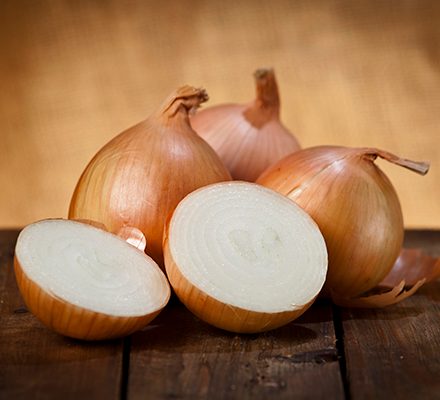
Are you in need of in-depth knowledge on onion and garlic production? If yes, we are a call away. Contact us for: Onion seedlings, Garlic seedlings, Germinated garlic cloves, Farm planning services, Soil testing, training on onion and garlic growing, Drip irrigation installation and maintenance, Agronomic support, Onion and Garlic value pack and Farm management. For free consultation, placing orders or booking a visit with an agronomist, please contact us via Call or what’s app +254703982228, Email: Info@oniondoctor.co.ke. You can also check out our social media handles for daily updates on TikTok: https://www.tiktok.com/@oniondoctorke?_t=ZM-8wmsTu0qumO&_r=1 Instagram: https://www.instagram.com/oniondoctorke?igsh=MTVoaHF3aWUydTJzaQ==Facebook:https://www.facebook.com/share/16SwgYn2dG/ Youtube:https://youtube.com/@oniondoctorke?si=u5Jnd-r0qU9UDYqL and Twitter: https://x.com/OnionDoctorKe?t=FR3JXlS_oN1vjjUgAtfyzg&s=09
Top Onion Varieties for Optimal Growth in Kenya’s Climatic Conditions – Expert Tips from Onion Doctor
Onions come in various varieties, each suited to different environmental conditions. In Kenya, some of the most commonly grown onion varieties include Texas Grano, Red Pinoy, Red Creole, and Red Bombay. Choosing the right onion variety is crucial to maximizing yields and ensuring your crop thrives, especially with the guidance of experts like Onion Doctor.
Best Onion Varieties for Kenya’s Climate
When it comes to growing onions in Kenya, it’s essential to pick varieties that are adapted to the local climate. The Texas Grano and Red Creole are known for their high yield potential and adaptability to different climatic zones. Red Pinoy and Red Bombay also perform well in Kenya’s diverse agricultural regions.
Hybrid onion seeds, such as those offered by Onion Doctor, can further enhance crop performance. These hybrid seeds ensure higher yields, improved disease resistance, and tolerance to pests—perfect for Kenyan smallholder farmers looking to increase productivity.
Ideal Climatic Conditions for Growing Onions
Onions grow best in regions with cool, moderate climates. The ideal elevation for onion farming is 1900 meters above sea level, with temperatures ranging between 13°C and 20°C. In Kenya, regions like Naivasha, Bugoma, Oloitoktok, Kakamega, and Meru provide the perfect environment for onion farming.
That said, even if you’re located in a region with slightly different climatic conditions, you can still successfully grow onions by adjusting farming practices. Creating favorable conditions for onion growth is key to optimizing yields.
Preparing Land for Onion Farming: Key Tips
Onions require well-drained, sandy loamy soils with a pH between 5.5 and 7.5. Before planting, it’s important to prepare the land by clearing any weeds and ensuring the soil is fertile. Propagation from seeds is common, and thus, creating a nursery bed is an essential first step.
For best results, prepare your nursery bed with the proper specifications—1 cm wide and 50 cm long. The width is important as it allows for easy handling of seedlings without excessive stretching.
How to Plant Onion Seeds for Maximum Yields
Planting onion seeds properly is critical to achieving high yields. Dig shallow furrows, about 15 cm apart, and mix your seeds with sand to improve seed spread. Mulch the seedbed immediately after planting to suppress weed growth.
During the first 7 to 10 days, water the nursery frequently to ensure consistent moisture. After germination, reduce watering frequency, ensuring not to overwater as this could lead to waterlogging and damage the plants.
Best Plant Husbandry Practices for Onions
Once your onion seedlings begin to germinate (usually after about 10 days), the next step is nurturing them for optimal growth. Remove the mulch to allow the plants to breathe and provide overhead shade to protect them from direct sunlight. Regular weeding and fertilization are essential to promote healthy plant growth and increase yields.
Transplanting should occur when the seedlings are 6 weeks old and have developed at least three to five strong leaves and a pencil-like base. To minimize transplant shock, begin removing the overhead cover a week prior to transplanting. This will help the seedlings acclimatize to the sun.
Post-Transplant Care and Harvesting Tips
After transplanting, continue with proper care, including weeding, pest management, and watering. Regular monitoring for pests and diseases will help protect your crop. With careful husbandry, your onions will grow to maturity, ready for harvesting.
How Onion Doctor Helps Kenyan Farmers
Onion Doctor supports smallholder farmers across Africa by providing access to high-quality and affordable onion and garlic seedlings. Their services extend beyond seedlings, including farm planning, soil testing, drip irrigation installation, and agronomic support. With Onion Doctor, farmers receive expert guidance on optimizing yields and maximizing profits, ensuring that every farmer can grow onions successfully in the best possible conditions.
I am interested in planting onions in Ikanga Area in kitui county.
Which is the best seed variety?
How do I access the Onion Doctor Advise?
I have 20 acre land available for the farming.
My contact +254 725 943228
Kindly Contact me on +254703982228 so we can communicate